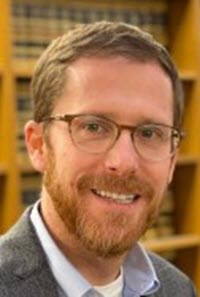Abstract
Excerpted From: Evan Kuluk, Disparate Racial Impact of Discretionary Prosecutorial Charging Decisions in Gang-related Murder Cases: Litigating the Racial Justice Act in People v. Windom, 29 Berkeley Journal of Criminal Law 71 (2024) (34 Footnotes) (Full Document)
 Eric Windom is a young African American man, who, along with three co-defendants, was charged by the Contra Costa District Attorney's Office with murder, attempted murder, conspiracy, and gang allegations-including the gang murder special circumstance-based on an alleged shooting that took place in Antioch, California in 2021. Mr. Windom, represented by the Contra Costa County Alternate Defender Office, successfully filed a motion to dismiss the gang murder special circumstance pursuant to the California Racial Justice Act, becoming the first in the state to do so.
Eric Windom is a young African American man, who, along with three co-defendants, was charged by the Contra Costa District Attorney's Office with murder, attempted murder, conspiracy, and gang allegations-including the gang murder special circumstance-based on an alleged shooting that took place in Antioch, California in 2021. Mr. Windom, represented by the Contra Costa County Alternate Defender Office, successfully filed a motion to dismiss the gang murder special circumstance pursuant to the California Racial Justice Act, becoming the first in the state to do so.
Contra Costa County is situated in the East Bay of the San Francisco Bay Area. A county of approximately 1.15 million residents, Contra Costa is highly diverse, but also significantly segregated. Two particular cities-Richmond in the far west of the county and Antioch in the far east-are home to vibrant African American communities and are historically over-policed. Anecdotally, over the past decade, public defenders practicing in Contra Costa have observed a significant overrepresentation of Black clients who are charged with gang enhancements and special circumstances. Special circumstances, alleged pursuant to California Penal Code Section 190.2, are statutory aggravating factors that can elevate the sentence for first-degree murder. If found true by a jury or admitted by a defendant, first-degree murder with a special circumstance carries a mandatory sentence of life in prison without the possibility of parole (“LWOP”), if the prosecution is not seeking the death penalty.
Black defendants are disproportionately sentenced pursuant to gang allegations in Contra Costa County. Over 92 percent of people serving prison time in California for convictions with gang enhancements are Black or Latinx. Of that population, 24 percent are Black. In Contra Costa County, 48 percent of those sentenced to California Department of Corrections and Rehabilitation (“CDCR”) with gang enhancements are Black-double the statewide average. As of July 1, 2021, U.S. Census data establishes that the population of Contra Costa County is 9.5 percent Black or African American. Thus, Black individuals prosecuted in Contra Costa County are sentenced to prison with gang enhancements at exceedingly high rates that are vastly disproportionate to the county's demographics.
Based on CDCR data and anecdotal experience of public defenders, the Contra Costa Alternate Defender Office requested public records information for seven years of charging decisions in homicide cases from the Contra Costa District Attorney via California Public Records Act request in 2022. The data obtained included all individuals charged with murder and gang allegations between 2015 and 2022, along with the race/ethnicity for each charged defendant. Some of those individuals were charged with murder (Penal Code § 187) and a standard gang enhancement (Penal Code § 186.22(b)) which carries life in prison with the possibility of parole. Other individuals were charged with murder and the gang murder special circumstance (Penal Code § 190.2(a)(22)), which carries LWOP. Both sets of charges fall under the general grouping of “gang-related murder.”
[. . .]
Special circumstance allegations carry the most extreme of punishments and should not be taken lightly. Implementation of objective charging criteria is a critical start to addressing the highly troubling overcharging of special circumstances, but will not be sufficient on its own to remedy decades of racially disparate charging practices. The CRJA will continue to be a necessary and valuable tool to identify and seek remedy for the impact of implicit racial bias on these weighty discretionary charging decisions made daily by prosecutors across the state of California.
Evan Kuluk has been a Deputy Public Defender at the Contra Costa Public Defender Office since 2010, currently assigned to the Alternate Defender Office.


